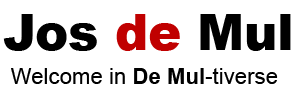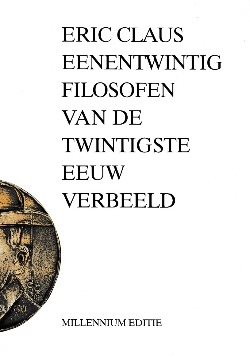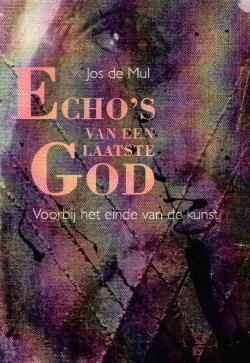Jos de Mul. Gemedieerd vertrouwen in de overheid Een wijsgerig-antropologisch perspectief op veiligheid en vertrouwen. In: Bas Haring, Jos de Mul, Liesbeth van Zoonen, Valerie Frissen, Michiel de Lange, Chris Sigaloff & & Wieteke Vrouwe. Essay Estafette, reflecties op de toekomst van de digitale overheid. Den Haag: Ministerie van BZK, 2016, 19-36.
In zijn Visiebrief digitale overheid van 23 mei 2013 heeft de minister van Binnenlandse Zaken en Koninkrijksrelaties aangegeven dat de burger in 2017 al zijn zaken met de overheid via internet moet kunnen regelen. Uit het in december 2013 gepubliceerde onderzoeksrapport De burger gaat digitaal stelt de Nationale ombudsman dat een meerderheid van de burgers in ons land dat streven ondersteunt. Dat is niet zo gek, aangezien zij in hun rol als consument reeds massaal zijn overgestapt op online winkelen, het via het internet regelen van bankzaken, het doen van boekingen van vakantiereizen etc. Digitale dienstverlening door de overheid is om dezelfde redenen aantrekkelijk: zij is 24 uur per dag beschikbaar, belooft een forse tijdsbesparing op te leveren en de zaken kunnen bovendien comfortabel vanuit de huiskamer worden geregeld.
De enquête, die de Nationale ombudsman in samenwerking met het consumentenprogramma TROS Radar uitzette, en waarop door ruim 48.000 burgers werd gereageerd, leert evenwel dat de burger in weerwil van deze positieve grondhouding opvallend weinig vertrouwen heeft in de deugdelijkheid van de digitale dienstverlening van de overheid. Bijna de helft heeft geen fiducie in de veiligheid van de ICT-systemen van de overheid, ruim een derde heeft geen vertrouwen in de manier waarop de overheid met de gegevens omgaat, en bijna een vijfde van de respondenten geeft aan wel eens met verkeerde gegevens in overheidssystemen te hebben gestaan. Op een schaal van tien scoort geen enkele overheidsinstantie op het vlak van de digitale dienstverlening hoger dan een mager zeventje (de RWD doet het nog het best met een 6,9), terwijl bijna een kwart een onvoldoende krijgt (waarbij de UWV met een 4,8 het slechtste rapportcijfer krijgt). Deze lage waardering brengt de Nationale ombudsman ertoe de overheid op te roepen gerichte actie te ondernemen om het vertrouwen in de digitale overheid te versterken.[1]
Dat is natuurlijk gemakkelijker gezegd dan gedaan. Met dit essay beoog ik een bijdrage te leveren aan de ontwikkeling van een meer betrouwbare digitale overheid door de op het eerste gezicht paradoxale tegenstelling tussen enerzijds de bereidheid van de burger ‘digitaal te gaan’ en anderzijds diens gebrek aan vertrouwen in de digitale dienstverlening van de overheid aan een nadere analyse te onderwerpen. Ik zal betogen dat deze paradox samenhangt met het sterk gemedieerde karakter dat het vertrouwen in de informatiesamenleving heeft gekregen. Waar in de traditionele gemeenschap vertrouwen vooraleerst een interpersoonlijk karakter bezat, en in de moderne staat de gestalte aannam van een meer afstandelijk systeemvertrouwen, daar wordt het vertrouwen in de informatiesamenleving in toenemende mate gemedieerd door voor de burger onzichtbaar functionerende informatietechnologieën, waarvan de effecten het vertrouwen in de digitale overheid van binnenuit dreigen uit te hollen.
Teneinde deze stelling te onderbouwen, zal ik in het eerste deel van het essay stilstaan bij de betekenis van de begrippen ‘veiligheid’ en ‘vertrouwen’ en een aantal aanverwante noties. In het tweede deel zal ik een aantal kenmerken van de informatiesamenleving beschrijven die betrekking hebben op het vertrouwen, om vervolgens in het derde deel in te gaan op de uitdagingen én kansen die het gemedieerde vertrouwen met zich meebrengt voor een overheid die het vertrouwen van de burger in haar digitale dienstverlening wil versterken of terugwinnen.








